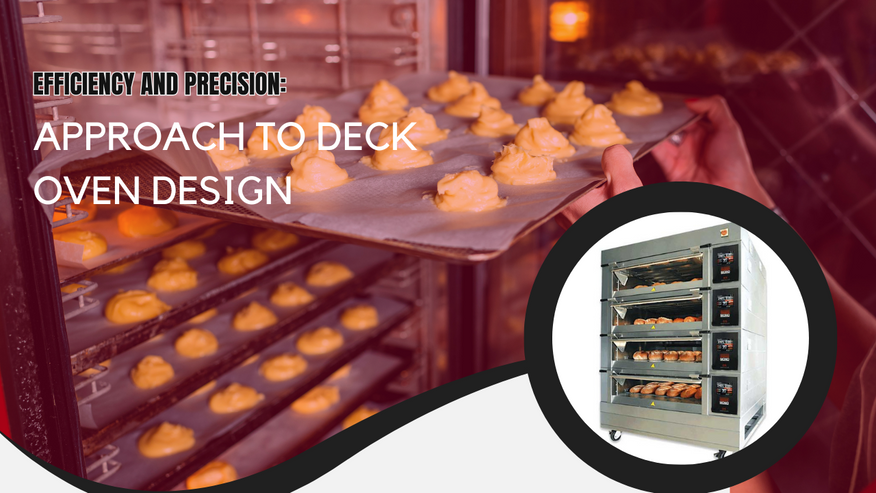Apr 10th 2024 - Team Member
Efficiency and Precision: Approach to Deck Oven Design
In the world of commercial baking, the deck oven stands as an essential tool, providing the heat and control necessary for consistent and high-quality results. A well-designed deck oven can significantly impact the productivity and quality of a bakery operation. In this comprehensive guide, we will explore the role of efficiency and precision in deck oven design, highlighting key features and considerations that can enhance the baking experience and optimize energy costs.
Efficiency in Deck Oven Design
Efficiency in deck oven design is crucial for several reasons, with energy consumption being a primary concern. A deck oven should be able to reach and maintain high temperatures while minimizing energy loss, leading to reduced operating costs and a more sustainable baking process. Modern deck ovens often feature advanced insulation materials and precise temperature controls to achieve optimal energy efficiency.
Precision in Temperature Control
Precise temperature control is essential for achieving consistent results in baking. Deck ovens should have accurate temperature gauges and controls to ensure that the oven remains at the desired temperature throughout the baking process. This is particularly important for delicate products such as pastries and artisan bread, where slight variations in temperature can affect the final outcome.
Design Features for Enhanced Efficiency and Precision
- Insulation: Proper insulation is crucial for minimizing heat loss and maintaining consistent temperatures. High-quality insulation materials help reduce energy consumption and improve baking results.
- Airflow: Efficient airflow within the oven chamber ensures even baking and prevents hot spots. Deck ovens should be designed to promote uniform airflow, allowing for consistent results across all baking decks.
- Steam Injection System: Many modern deck ovens are equipped with steam injection systems, allowing bakers to control the amount of steam in the oven. This is crucial for achieving the perfect crust on bread and pastries.
- Digital Controls: Digital controls offer precise temperature settings and monitoring, allowing bakers to adjust settings with accuracy and ease. This level of control is essential for achieving consistent results in baking.
- Deck Materials: The materials used for the baking decks can impact efficiency and precision. Stone or steel decks are commonly used for their heat retention properties, which help create the ideal baking environment.
Energy Efficiency and Cost Considerations
Energy costs can be a significant expense for commercial kitchens, so choosing an energy-efficient oven can lead to substantial savings over time. Deck ovens that are well-insulated and have precise temperature controls can help reduce energy consumption and lower operating costs. Additionally, energy-efficient ovens contribute to a more sustainable baking process, aligning with modern environmental standards.
Benefits of Efficient Deck Oven Design
In addition to cost savings, an efficient deck oven can offer other benefits to a commercial kitchen. The ability to maintain consistent temperatures and airflow can result in more consistent baking results, leading to higher-quality products. This is particularly important for bakeries that pride themselves on producing artisanal bread and other baked goods.
Conclusion
Efficiency and precision are paramount in deck oven design. By focusing on these key aspects, bakery owners can enhance their baking operations, improve product quality, and reduce operating costs. Investing in a well-designed deck oven can be a significant step toward achieving baking excellence while optimizing energy costs and maintaining a sustainable baking process.

